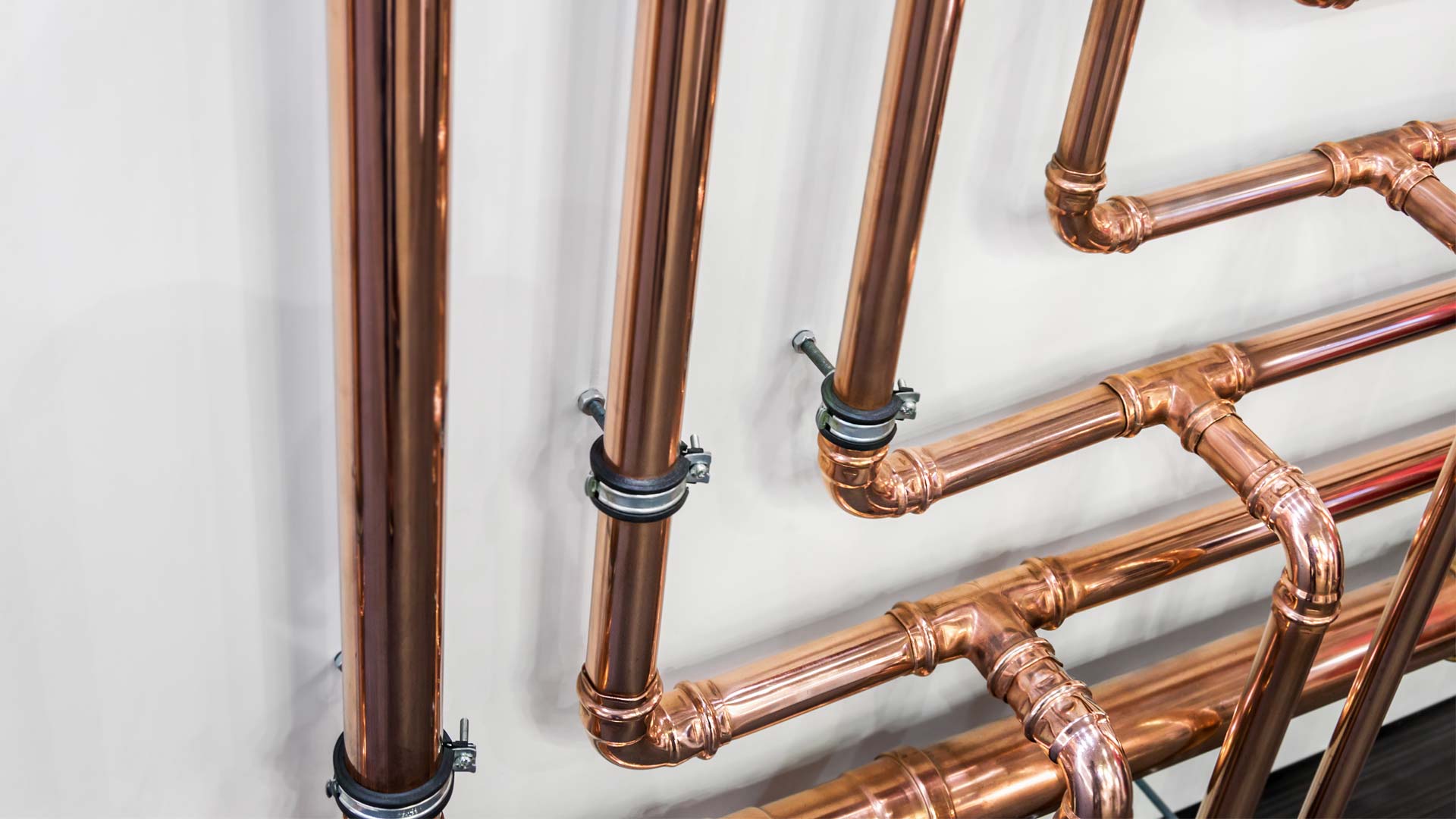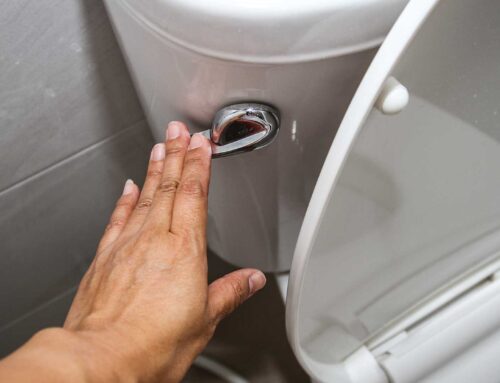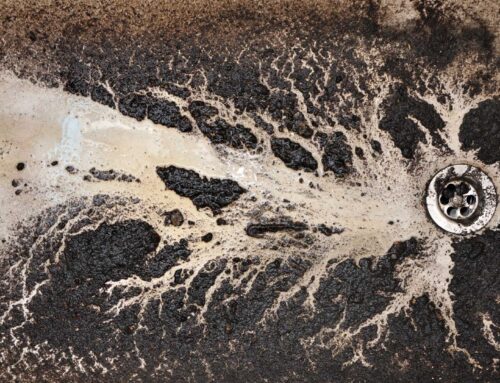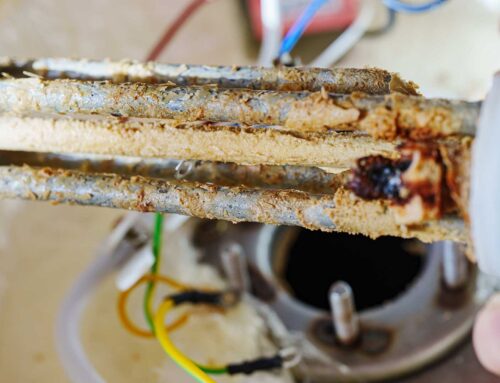Repiping your home is a big decision—but one that can dramatically improve your home’s plumbing efficiency, water quality, and long-term value. As plumbing systems age, they become less efficient, susceptible to leaks, and even drinking water contamination.
Whole-house repiping involves replacing a home’s existing plumbing (supply and/or drains) with new, safe, long-lasting piping materials.
Replacing aging pipes with modern, durable materials gives you reliable plumbing for years to come.
This guide covers everything you need to know about repiping your home, from identifying the right time to repipe to the details of the repiping process and the costs involved.
By the end, you’ll have the information you need to make an informed decision and feel confident about upgrading your plumbing system.
Signs It’s Time to Repipe Your Home
Before repiping a house, you’ll want to determine the condition of your existing plumbing pipes. Here are the most common signs that your current plumbing system might need an upgrade:
1. Water Quality Issues
Discolored water can indicate corrosion in your pipes. Brown or rust colored water could mean that contaminants are leaching into your water supply. Not only does this affect water taste and odor, but it can also pose health risks.
2. Persistent Plumbing Problems
Frequent leaks, dripping faucets, damp spots on walls or ceilings, and water stains are signs of possible damage in your home’s plumbing system. Over time, these issues can lead to costly repairs. It’s often more cost effective to replace existing pipes than to pay for frequent repairs or wait until you have a total plumbing failure on your hands.
3. Low Water Pressure
Corrosion buildup or blockages in older pipes can lead to frustratingly low water pressure, making daily tasks like showering and doing laundry a real chore. If you have low water pressure, it’s a good idea to have a professional plumber determine the cause of your slow water flow.
What Materials Are Best for Repiping a House?
If you decide that installing new pipes is the right next step for your home, choosing the right piping materials is the next step. The materials you and your plumber choose will affect the durability, efficiency, and environmental impact of your new piping system.
As your trusted local plumbers, here’s what Barnett Plumbing & Water Heaters recommends:
For Water Supply Lines
If you currently have galvanized water lines, replacing them with copper pipes connected to lead-free joint materials is the best choice. Copper pipes are highly durable, resistant to corrosion, and capable of lasting up to 80 years. Unlike older galvanized steel pipes, copper pipes will not leach harmful chemicals into your drinking water.
For Drain Lines
If you currently have cast iron or copper drain lines, ABS (Acrylonitrile Butadiene Styrene) is the best replacement material. Cast iron plumbing is heavy and prone to corrosion and clogs. ABS, on the other hand, is incredibly durable, lightweight, and resistant to chemical corrosion. ABS pipes are also slightly easier to install than cast iron pipes, making them an ideal choice.
Environmental Considerations
Copper can be recycled repeatedly without significant loss of its properties, making it a more eco-friendly choice than some other pipe replacement options. Although it is also possible to recycle ABS, it is a more difficult process.
However, with increased efficiency in both water flow and heating, a new plumbing system provides long-term environmental benefits. Choosing the right materials for your entire house will give you safe and efficient plumbing, help minimize your home’s environmental impact, and likely save you money on your utility bills.
Cost Considerations for Repiping a Home
Repiping your house can be a substantial investment. Understanding the factors that contribute to the price will help you know what to expect.
Key Factors That Impact Repiping Project Costs
- Size Of Your Home: Larger homes require more materials and labor due to the increased pipe runs and fixture connections.
- Labor Costs: Rates for skilled plumbers vary depending on their expertise and your location. Always hire licensed and insured professionals to keep your home in compliance with local building codes.
- Permits: These typically range from $200 to $1,500, depending on your municipality. Barnett Plumbing & Water Heaters can handle your permit applications for you so you don’t have to worry about any of the details.
- Restoration: Once repiping is complete, repairs to walls and other surfaces will be needed. Barnett now offers repair options for walls to save you the effort of finding an additional contractor.
The Long-Term Benefits of Repiping Your Home
Repiping may feel like a major undertaking, but the benefits far outweigh the initial disruption and expense. Here’s why repiping your home is well worth it:
1. Improved Water Quality and Pressure
New pipes lessen contamination, giving you cleaner, great-tasting water. The improved water pressure also helps your showers, faucets, and appliances work more efficiently.
2. Increased Property Value at the Time of Sale
Repiping enhances your home’s market appeal and resale value. Buyers are drawn to homes with modern plumbing systems, knowing they won’t face unexpected repair headaches.
3. Reduced Repair Costs
By replacing old pipes, you eliminate the recurring repair expenses from leaks, clogs, and other issues caused by older plumbing.
4. Prevent Water Damage
Leaky or corroded pipes can lead to extensive water damage, costing thousands of dollars to repair. Repiping protects your home from these risks, saving you from costly emergency repairs and providing peace of mind.
Managing Disruptions During the Process
Repiping a home is a multi-day project. Although it comes with significant long-term benefits, most homeowners dread the disruption to their daily routine. Knowing what to expect before starting the repiping process can make it a more seamless experience.
1. Understand the Timeline
Repiping typically takes several days, depending on your home’s size and layout. After the plumbing installation, additional time may be needed for restoration. It’s a good idea to confirm the timeline with both your plumber and the contractor you chose to repair your flooring and/or drywall so you know exactly how long the project will take.
2. Plan for Water Disruptions
Water service will be turned off at various stages of the project. While many families remain in their homes during repiping, some prefer to stay with relatives or in a hotel for a few days for convenience.
3. Prepare Access
The plumber will need access to your pipes. You’ll likely need to move furniture and belongings to give them a clear pathway to all pipes and fixtures. This makes it easier for plumbers to work efficiently and minimizes potential damage to your home.
4. Communicate with Your Plumber
Discuss timelines, project milestones, and any other concerns with your plumber and contractor before the project begins. Having clear expectations will minimize disruption and frustration during the repiping process.
Barnett Plumbing & Water Heaters: The Tri-Valley Area Repipe Specialists
If you live in Livermore, CA and the surrounding area, Barnett Plumbing & Water Heaters is the top choice for your home’s repiping project. Throughout the Tri-Valley area, homeowners trust us for their home repiping needs because:
- We are locally owned and operated. We’re a part of your community and understand the unique needs of Tri-Valley homes.
- We’ve got years of experience. With more than 15 years of experience and 1,000+ 5 star reviews on Google, you can trust that Barnett Plumbing & Water Heaters always delivers a job well done.
- We’re just a call away. We pride ourselves in quick response times because we know that when you’ve got issues with your plumbing system, you need help fast.
- We’ll only sell you what you need. It’s the Barnett promise. When you call or schedule an on-site estimate, whether for a repair or a replacement, there will be no pressure. No obligation. We will not sell you anything you don’t need or want.
If you’re ready to upgrade your plumbing system, call Barnett Plumbing & Water Heaters at (925) 294-0171 today for a free estimate. Our team of repiping specialists is ready to update your home’s pipes with minimal disruptions to your daily life.






